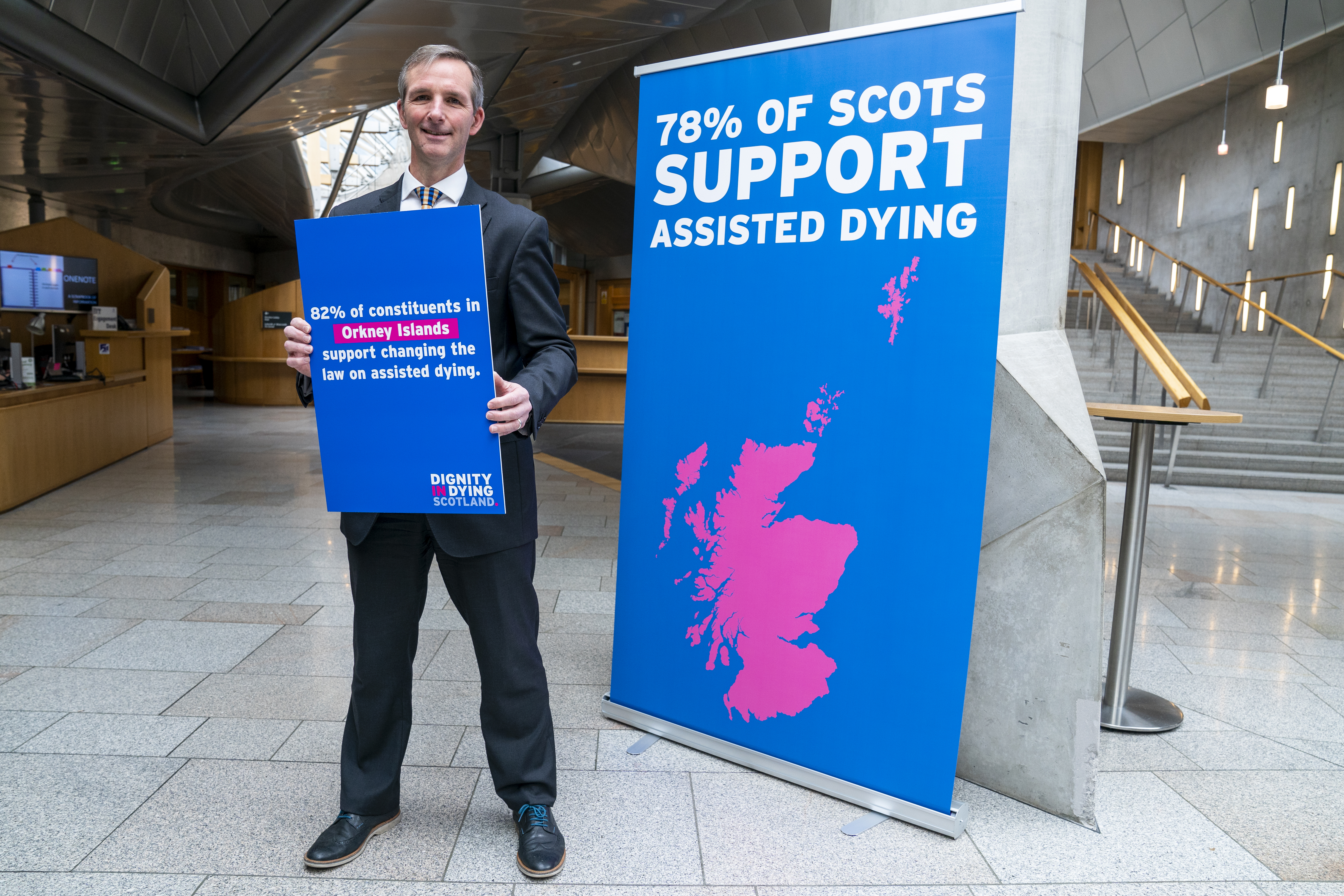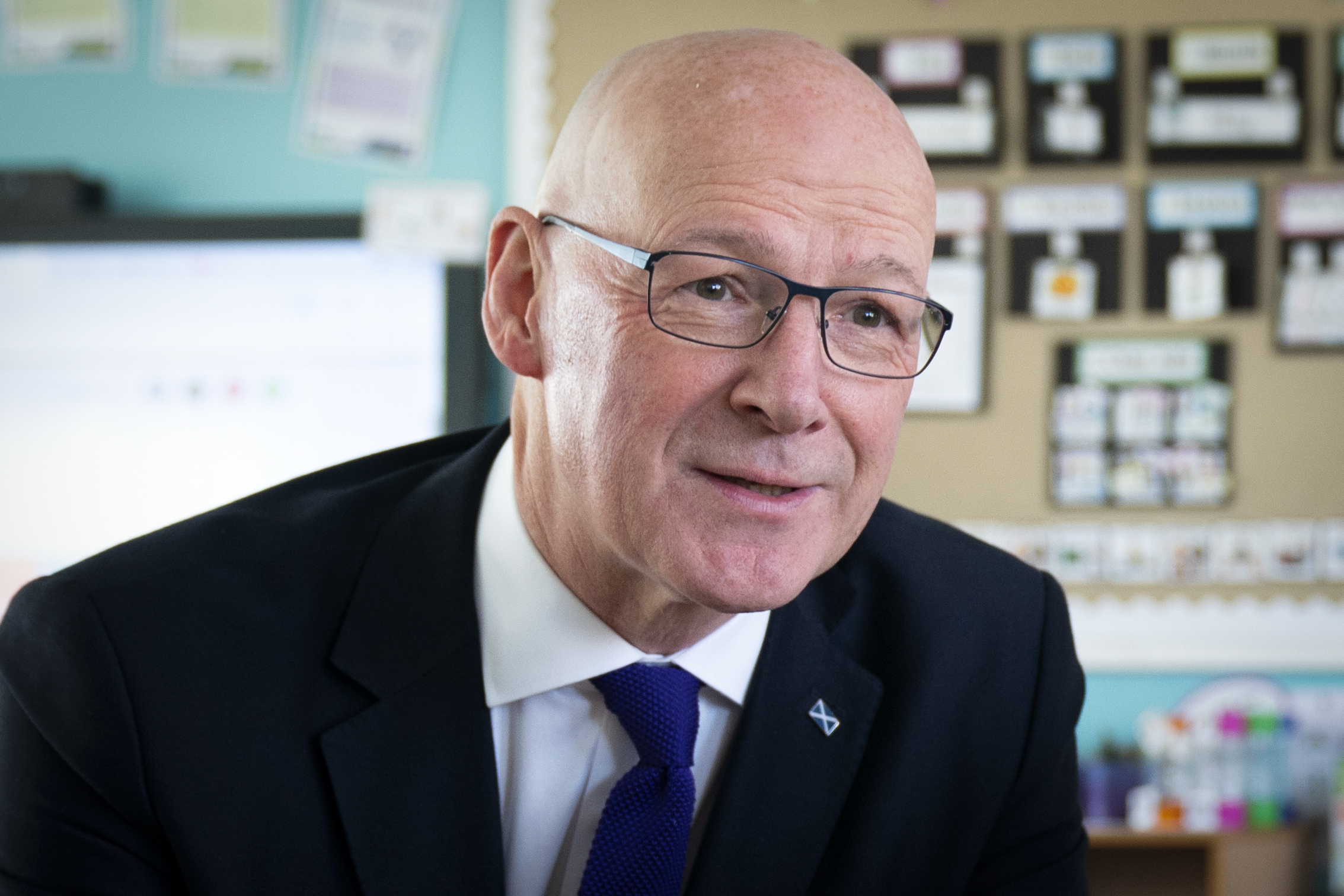Bill on Assisted Dying faces key vote at Scottish Parliament
Liam McArthur’s Bill would, if passed, allow terminally ill adults to seek help to end their life.

The MSP seeking to change the law and introduce assisted dying for terminally ill Scots has insisted an “overwhelming majority” of Scots back the measure.
Liam McArthur spoke out ahead of his member’s Bill facing a key vote at Holyrood on Tuesday.
The Bill, brought forward by the Liberal Democrat MSP would, if passed allow adults at the advanced stage of a terminal illness to seek help to end their life.
Holyrood will vote this evening on the general principles of the Assisted Dying for Terminally Ill Adults (Scotland) Bill – with a majority of MSPs needing to back the legislation if it is to continue its progress through the Scottish Parliament.

Both opponents and supporters of assisted dying will stage demonstrations outside Holyrood on Tuesday as MSPs prepare to cast their votes.
Both First Minister John Swinney and Deputy First Minister Kate Forbes have already said they will vote against the Bill, as has Scottish Labour leader Anas Sarwar.
It comes as critics fear the proposals could leave disabled people and vulnerable Scots feeling under pressure to prematurely end their lives.
Mr McArthur, however, insists the legislation would have “strict eligibility criteria” with proposals also “robustly safeguarded”.

Speaking ahead of Tuesday evening’s vote, the MSP insisted: “This an issue on which an overwhelming majority of people of Scotland believe a change in the law is required.
“Public polling is consistent across age range, political affiliation, disability status, geographic area and religious belief – Scots want to see dying people in this country given more choice at the end of life.”
He added: “Drawing on international evidence, my Bill would ensure people who meet the strict eligibility criteria are able to exercise that choice in a way that is robustly safeguarded.
“Indeed, my Bill would put in place safeguards that don’t currently exist, a situation that leaves many terminally ill people more vulnerable and more likely to take matters into their own hands.
“This shows that not taking action has serious consequences, too, with more deaths that are painful and undignified, despite the best efforts of palliative care, and more traumatised families left behind.”
If his Bill passes on Tuesday evening, the proposals would return to Holyrood for further scrutiny and amendment, before MSPs have a final vote on whether it should become law.
Mr McArthur, however, insisted that Scotland “cannot put off” debating assisted dying, and the Parliament “cannot continue to leave this issue in the too difficult box”.
He said that MSPs “must, at the very least, allow time for amendments to be considered to see if a Bill can be agreed that commands majority support and public confidence”.
He added: “To my MSP colleagues, I say, if you have not yet made up your mind, my door is always open.
“But, most importantly, I would urge you to listen to the voices of terminally ill Scots desperate for more choice, control and dignity.
“This Bill has been a long time coming but it does now offer the chance to provide that compassionate choice for the small number of terminally ill Scots who need it.”
Dr Miro Griffiths, spokesman for Better Way, said: “As a disabled person and academic, I fear the consequences of an assisted suicide law.
“Polling clearly shows that the public have serious concerns about the implications of a law change for vulnerable groups – even people who might support it in principle.
“Legislating for this practice would send a regressive message that disabled people’s lives are not worth living. Disabled people and others would inevitably choose to end their lives because they don’t have access to support. This outcome is unconscionable.
“We urge MSPs to oppose the assisted suicide Bill. As with past legislation in this area, the proposal is unsafe, and unworkable.
“It cannot be made ‘safe’. MSPs should devote their energy to improving truly ethical and progressive forms of support.”





